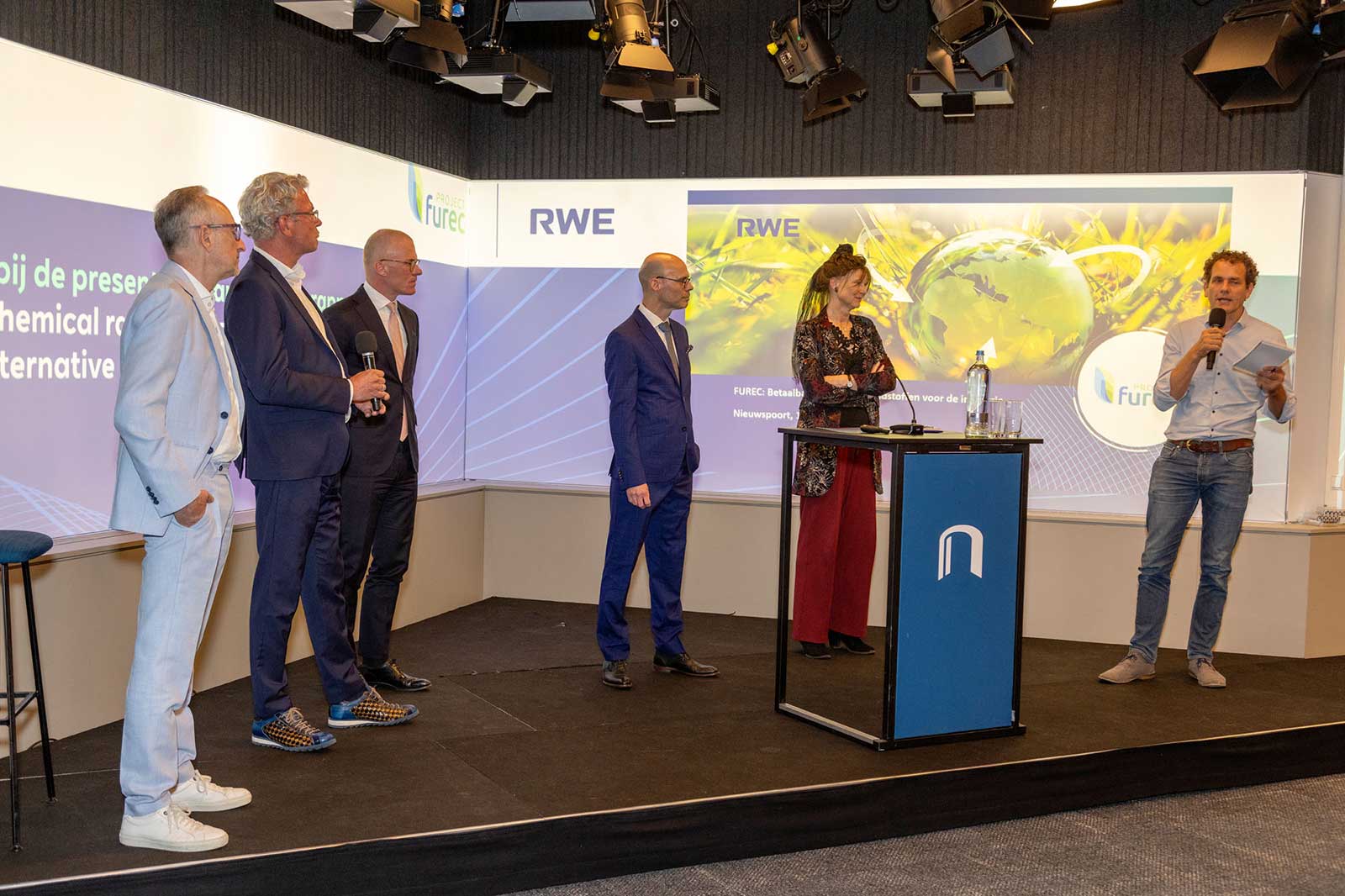The chemical industry in the Netherlands and Europe is under pressure from rising raw material prices, low economic growth and high decarbonisation costs. There is an increasing waste problem and the availability of critical raw materials is steadily decreasing. RWE comes up with a sustainable solution that makes an essential contribution to a circular economy: FUREC.
The Dutch government wants a fully circular economy by 2050, in which pressure on natural resources is reduced and waste is converted into new raw materials. Much waste is currently landfilled or incinerated and it is expected that by 2035, more than 30% of waste in the European Union will be non-recyclable, leading to a treatment gap of 36 million tonnes per year.
RWE's FUREC project responds to this. Denis Aarssen, FUREC project director: "FUREC stands for Fuse Reuse Recycle and converts non-recyclable waste into circular syngas. This is a mixture of hydrogen and CO2 and this then serves as a raw material for the chemical industry, which turns it into fertilisers, nylon and melamine, among other things. In this way, we provide the chemical industry with affordable, local and circular raw materials."
PwC Strategy& conducted research into the future value chain of chemical raw materials and the role of alternative waste treatment technologies. The results were presented at a breakfast session held on Tuesday 13 May 2025 in Nieuwspoort, The Hague. Paul Nillesen, partner PwC Strategy&: "Innovative waste processing technologies such as FUREC are badly needed to accelerate the transition to a circular, competitive and climate-neutral chemical industry in the Netherlands and Europe. It reduces CO2 emissions and lowers natural gas imports, and so we are less dependent on oil- and gas-producing countries."
During the panel discussion, Marjan Minnesma (Urgenda director) stressed that FUREC technology should become a full part of the transition to a sustainable society. According to Elbert Dijkgraaf (professor Erasmus University), FUREC makes a higher rung on the Ladder of Lansink feasible and matches the gigantic demand for renewable raw materials (82 Mton in 2035).
The FUREC team is working hard to realise a first installation to be located on the Chemelot (Limburg) industrial estate, but ambitions are to roll out FUREC further within the Netherlands and then Europe. MPs Henk Vermeer (BBB) and Joris Thijssen (GroenLinks-PvdA) reacted positively to these plans and took PwC's policy recommendations to heart. Another important addition was that this form of hydrogen should be classified as sustainable.
More information on the FUREC project and the full report 'Study on the future chemical raw material value chain and the role of alternative waste processing technologies' can be found here.
